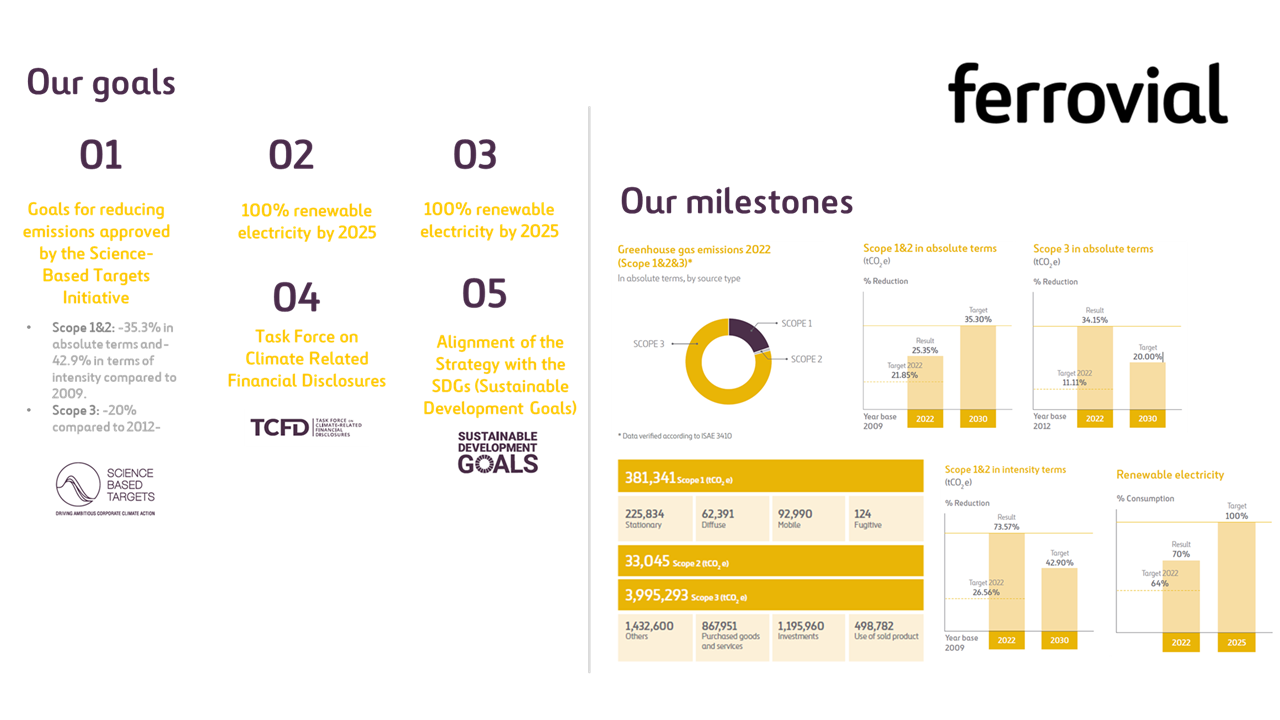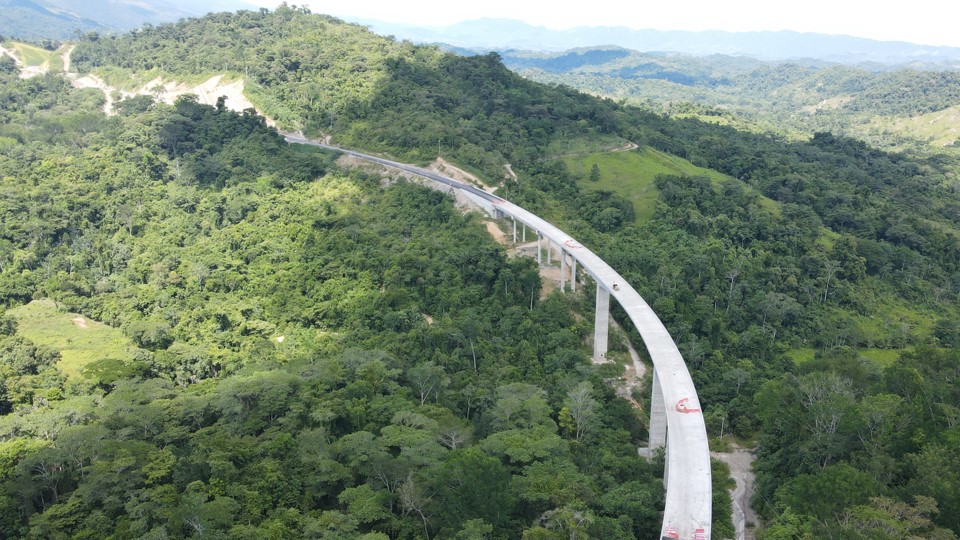Ferrovial Shadow Carbon Pricing
Ferrovial has developed a tool to quantify the climate risk of its most relevant investments in the form of “shadow carbon pricing”, to accelerate the decarbonization of its business models. This tool considers variable prices for a ton of carbon for different time horizons, regions and project types, thus quantifying the potential economic risk associated with climate change in the projects where the tool is used.
Ferrovial’s carbon pricing initiative is fully aligned with the Paris Climate Agreement, the EU’s taxonomy system, and the expectations of investors and financers, which is a direct incentive towards achieving the decarbonization of the economy, as well as providing quality information to redirect investments towards more sustainable activities.
The Deep Decarbonization Path plan, included in Ferrovial’s Horizon 24 strategy, sets the route to achieve the reduction targets set by the SBTi for 2030 in construction and infrastructure. The main steps in this plan are 100% electricity consumption from renewable sources by 2025, 33% fleet emissions reduction by 2030, improving energy efficiency in asphalt plants by 20%, and increasing energy efficiency in construction machinery by 10%.
For years, Ferrovial has positioned itself as an industry leader that builds and operates sustainable infrastructures while looking for new business opportunities in mobility, water, electrification, energy efficiency and infrastructure adaptation. By providing solutions through its low-carbon business models, Ferrovial has become a strategic partner for emission mitigation and adapting to the effects of climate change.



